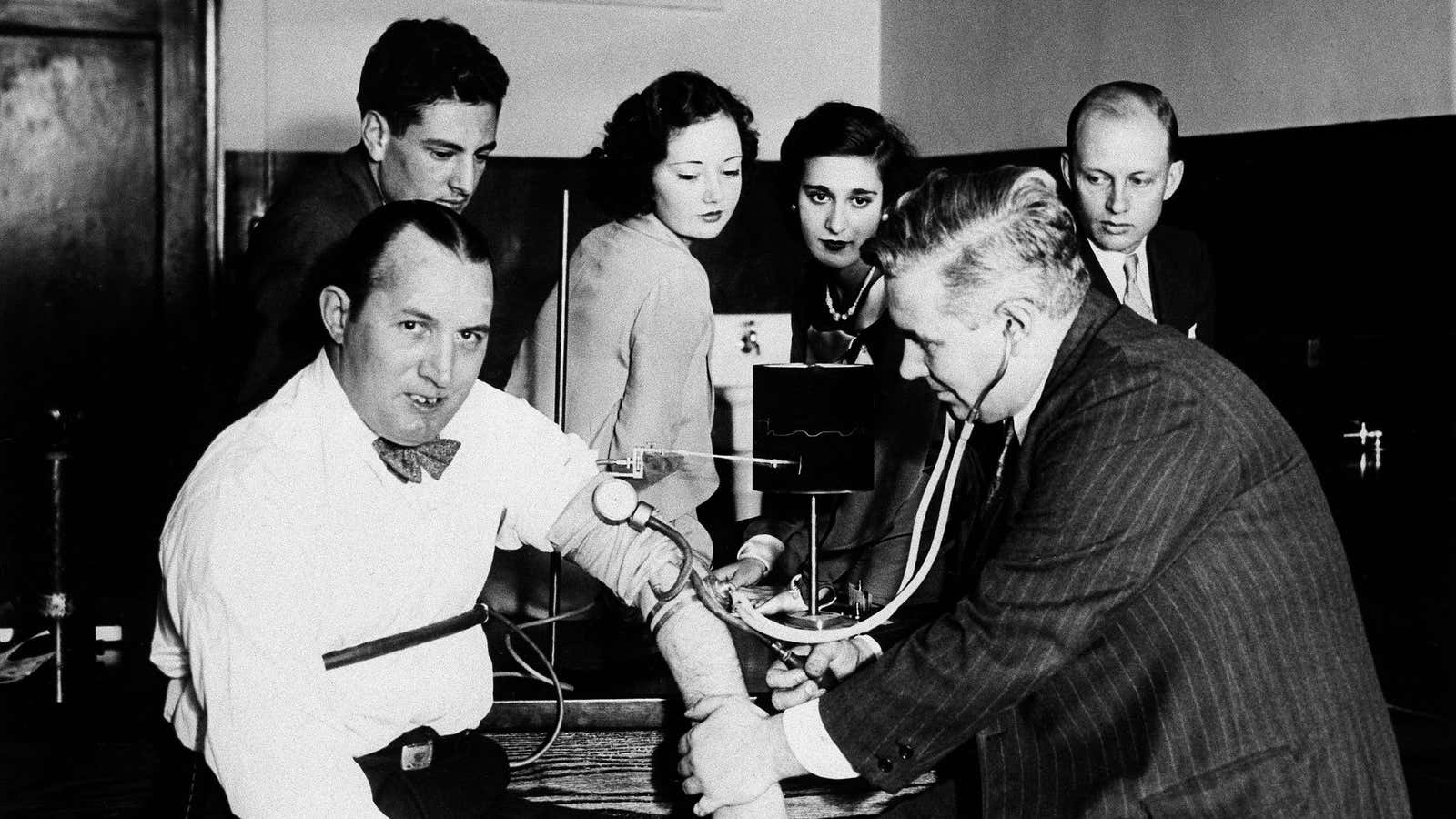Despite decades of work in the field, detecting deception accurately is no easy feat. Even the best techniques and the most trained people only score slightly better than chance at catching liars.
But building a better lie-detector machine may not be the answer. The best way to improve our odds at detecting lies, researchers at the University of Chicago’s Booth School of Business believe, is in group discussions rather than technology.
A paper, just published in the American journal Proceedings of the National Academy of Sciences, indicate that groups do better than individuals, on average, at detecting lies.
From what we understand about human behavior, there are three ways in which groups can likely beat individuals at catching liars. First, the “wisdom of crowds” means that each individual’s judgment may improve the odds of success. Second, individuals are prone to believing others—the phenomenon is called “truth bias”—but in groups they become less trusting. Third, group discussion can help tease out information that each individual on her own may have missed.
But if groups really are better at spotting lies than individuals, which of these three ways provide the advantage? In four experiments, involving between 180 and 360 people, Nadav Klein and Nicholas Epley of the University of Chicago set out to answer that question.
In the first two experiments, participants watched 10 videos of speakers making a statement, which either an individual or a three-person group then had to test for its truth value. In a third experiment, individuals and groups watched the British TV show “Golden Balls,” where contestants vie for prizes of sometimes as much as £100,000 (about $150,000) based on their judgment of when other contestants are lying.
Finally, in the fourth experiment, Klein and Epley tested whether having a group discussion made any difference to people’s ability to detect lies. They split the participants into two sets, with groups within each. The groups in the first set started with a group discussion based on videos of individuals making statements, and made group judgment of whether they had been told a lie or the truth. After that, their individual judgments were recorded. The groups in the second set had their individual judgments recorded first, before the group discussion.
Klein and Epley found that the judgment participants expressed first had an effect on the judgment they made next. When checked against what was actually true, it emerged that having a group discussion first seemed to help individuals increase the chance of coming to the correct conclusion.
Interestingly, neither the wisdom of crowds nor the groups’ advantage against truth bias seemed helped groups do better. Instead, Klein and Epley argue that it is simply the group discussions that elicit new and useful information, which helps improve people’s chances of catching lies.
The upshot: While it makes sense to avoid useless meetings, if you and your colleagues find yourself in the unfortunate position of needing to catch a liar, there seems to be some value in sitting down as a group to talk it over.
